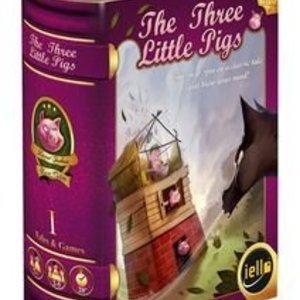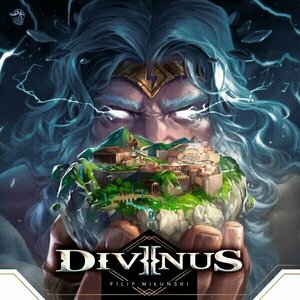
Dinosaur Island
Tabletop Game
In Dinosaur Island, players will have to collect DNA, research the DNA sequences of extinct dinosaur...
Boardgames JurassicParkTheBoardgame BooksintoGames WorkerPlacementGames
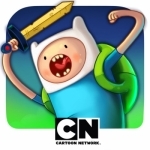
Champions and Challengers: Adventure Time
Games
App Watch
Challenge the Dice Lord to the ULTIMATE Adventure Time game! Prepare thyself for legendary...
games
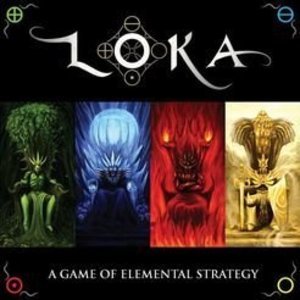
LOKA: A Game of Elemental Strategy
Tabletop Game
LOKA is a fantastically sculpted Chess sets and a brand new take on playing Chess, brought to you by...
Purple Phoenix Games (2266 KP) rated Tales & Games: The Three Little Pigs in Tabletop Games
Aug 18, 2020
Tales & Games: The Three Little Pigs (which I will fondly refer to as 3LP for the remainder of this review) is a cute little family dice and take-that game about building houses for maximum points while avoiding The Wolf’s hungry advances. The winner of the game is the Little Piggy who has built the most complete structures using the best materials that afford them the most endgame points.
To setup, sort the building tiles by material type and house level type as shown inside the box cover. Place the dice and spinner nearby. Let the youngest or cutest player go first. The game is now ready to be played!
On a player’s turn they will roll all the dice Yahtzee-style (so with two re-roll attempts), and the remainder of the turn is based on what is rolled. Players are not required to re-roll, but must stop once two or more Wolf symbols are rolled, or after the second re-roll. The player may then use the dice to purchase house materials corresponding to what was rolled. If three doors are rolled, a player may purchase a straw door (which cost two door symbols) or a wooden door (which cost three door symbols). These house parts can be of mixed materials, so once the pieces have been purchased, house construction can then be done.
Should a player roll The Wolf, then the “breath” spinner will be spun. The player who rolled The Wolf dice will choose an opponent AND one of their houses to target. Spin the spinner and destroy all matching pieces in their house. Some children have issues with this, but hey, they should have built more brick sections! Play continues in this fashion taking turns rolling and purchasing and building until several stacks of house sections are gone (depending on player count). All incomplete houses are crumbled, and piggy faces on standing houses are scored to determine the victor! When playing with my kiddo I don’t use the bonus cards, but they are available if playing with older and more strategic players.
Components. As this is one of the famed (and first in the line) Tales & Games Bookshelf games, it has set a standard for the series. These games come in boxes that look like books on the outside, open like a book, and contain a story to be read as a prelude to the game, if wished. The box is very very cool, and the insert is pink and wonderfully designed. The house tiles are thick and colorful, and the pink dice are just a joy to roll. I love the components in this one!
So obviously this is a game really designed to target younger gamers. And though it says 7+ on the box, I have successfully played this with my 3 year old with zero issues. He loves it, and in turn, makes me love it too. Now, I will certainly not pull this out at any given Game Night with adults (unless we have gamer spouses or friends who have NEVER played modern games at all). However, I really do enjoy playing it with my son for now, and for super-newbies. It is colorful, light on rules, offers some choices, and of course, has a touch of luck and take-that. All this while still feeling like you are in the story of The Three Little Pigs. So I say, if you were ever on the fence with this one – get it. Play it with whomever you like and just enjoy it. It is light enough with just a touch of adultness to keep you smiling. But don’t invite your Twilight Imperium or Mage Knight friends. They won’t like it. We at Purple Phoenix Games know how to get down with the simpler games as well, so that’s why we give this one a blown-over 9 / 12.
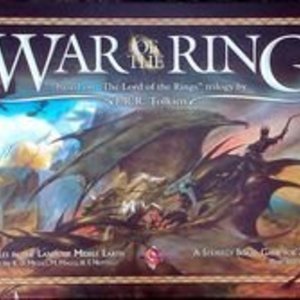
War of the Ring (First Edition)
Tabletop Game
War of the Ring is an area control strategy war game based on the events of Lord of the Rings. The...

Stellar Leap
Tabletop Game
Description from the publisher: Explore the galaxy in Stellar Leap! Take on the role of an alien...
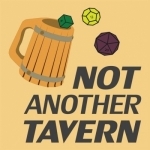
Not Another Tavern Podcast
Podcast
The Not Another Tavern Podcast is an actual play podcast focused on long-form storytelling while...
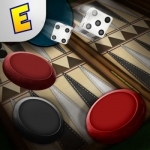
Backgammon Deluxe
Games
App
Backgammon Deluxe is an excellent version of one of the oldest two player dice board games. Players...
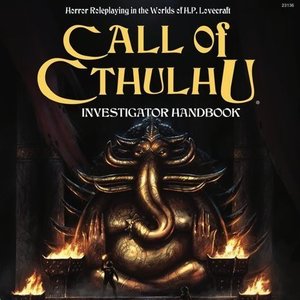
Call of Cthulhu (7th Edition)
Tabletop Game
Massively and enduringly popular role-playing game originally designed by Sandy Petersen, one of the...
Purple Phoenix Games (2266 KP) rated Divinus in Tabletop Games
Aug 10, 2021
Divinus is a competitive tile placement, campaign, drafting, dice game in which players assume the roles of upcoming demigods fighting over the one last spot at the table. By appeasing the gods of the warring ancient Roman and Norse cultures players will earn their place among them. This game uses some interesting hybrid app-driven story mechanics along with legacy-style component alterations to create this world that is constantly under refurbishment and ripe for the claiming of the future Divinus.
DISCLAIMER: We were provided a prototype copy of this game for the purposes of this review. These are preview copy components, and I do not know for sure if the final components will be any different from these shown. Also, it is not my intention to detail every rule in the game, as there are just too many. You are invited to download the rulebook, back the game through the Gamefound campaign, or through any retailers stocking it after fulfillment. -T
To setup, place the main board on the table, sort out the Map tiles by player count, and populate the board per the rulebook. Each player chooses their Demigod box and takes all components contained within. As Divinus is intended to be played either as a scenario session or its Eternal Mode, which is infinitely replayable using the board and components already altered by previously-played scenarios, open the chosen Scenario Box to be played and allow the app to instruct on how to setup with these components. All players roll their dice and place them in the “ready” pile to be used on their first turn. The first player takes the token (a black meeple in the prototype version) and the game is ready to be played!
Divinus is played in turns starting with the first player and continuing around the table until one player places their final Map tile signaling the end of the game. On a turn, players will have a choice of using an Explore action or a Rest action. More actions may be available in future scenarios, but for the prototype scenarios, these are the two available choices. During an Explore action, the active player will choose any number of their rolled dice in order to create a mathematical equation that matches with one of the Map tiles on the main board. These spaces range from 1-12 in value, so an appropriate dice combination could be 5 + 4 – 1 = 8 in order to claim the Map tile on the 8 spot. Any number of dice can be used to claim tiles, and once a tile is claimed, it must be placed within the player’s personal play area map. In order to add these tiles, the edges will need to match up by terrain type with tiles already presently in play (see below), or may also be placed atop an existing tile. Map tiles may or may not contain symbols for factions, locations, and also Sacred Places. These will all be used in scenarios for different purposes.
Once a player decides they do not wish to (or cannot) take more Explore actions, they must Rest. To Rest, the active player reclaims all spent (and unspent ready) dice and rerolls them for the next turn, replacing empty spaces on the board with new Map tiles.
Play continues in this fashion of Exploring and Resting until one player places their 16th tile, thus completing their 4×4 personal map. Players will consult the app for scoring instructions and the winner will be announced. Should the players wish to play another scenario (or many, as we would have liked), they simply use the same Demigods and open a new Scenario Box. Inside these boxes are different gods to appease, new quests to fulfill (more on these later), and stickers to be applied to game components to improve their usefulness.
Components. Again, this is a prototype version of the game, and it includes two introductory scenarios, a bunch of sticker sheets, and a developmental app. That said, I really enjoyed my plays of the scenarios and they felt like great first steps to lure me into what I just know is going to be somewhat of a lifestyle game (assuming more and more expansions are in the plans). The sticker sheets are all fine, and as I understand it, the stickers that are placed on the Map tiles will have non-removable glue, but the stickers placed on the dice faces will have removable glue. As I am not a glue expert, I can’t really vouch for either. The app is somewhat similar to those that are used in the Chronicles of Crime series, but Divinus promises to deliver an app that can scan the components WITHOUT the use of QR codes. For those gamers who think the QRs are an eye-sore, then Divinus is taking a promising first step for you! I haven’t even touched on the artwork yet, and that’s usually my favorite aspect of a game’s components. The visual style and art on Divinus really make the game pop on the table, and just draw you into the lore and setting. I love it!
So while initially Divinus is a simple roll-and-draft game of building a 4×4 grid akin to Kingdomino, the addition and usage of the Quests and, later, the Charge Actions, morph this into something quite a bit meatier. Each Scenario Box (at least in this version) contains two god cards (that affect how the end of the scenario is scored) and some Quest cards (that are side-quests players can follow to earn some extra VP and other goodies). I imagine as the game progresses through Scenario Boxes that Quests will get more difficult and the god cards more interesting as well.
All in all Divinus has roped me in, and I am very much looking forward to all the other great things that Lucky Duck Games has planned for it. I can foresee soooooo many expansions being built on this excellent chassis, and I am very eager to finish the entire legacy aspect in order to play through the Eternal Mode a bunch of times. Can I divulge a little dirty secret of mine here? I have never before played any type of legacy board game, and if this is what they are like, then I will be breaking out my copy of Betrayal Legacy way sooner than I originally planned.
I believe that the theming here is great, the gameplay is relatively simple to grasp, and the hybrid app-driven story really adds to the entire experience. If you are someone who, like me, has yet to delve into legacy-style games where the components are constantly changing due to choices made at the table, and you have a penchant for dice games with a splash of ACTUAL math skills used, I urge you to take a look at backing Divinus on Gamefound ASAP. With just the initial two scenarios included, I am already addicted to the game and cannot wait to sink my teeth into more scenarios and more crucial decisions that will alter the landscape of my copy of the game. I know that as of the publish date of this preview, the campaign is already about 1000% funded and so many stretch goals have already been unlocked. It is a great time to hop on board and grab a big ol’ chunk of goodies for this one. You may have a preference for Roman or Norse mythology before playing, but be warned: your loyalties may change as a result of playing Divinus… or maybe you will learn to accept both at the harmonious center of activity in your own little section of the world.
